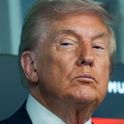It is a doctrine of mine, based on 40 years of observation, that politics is no better or worse than any other human activity. Many politicians are good, many are bad; some are very good, some very bad. There is the odd saint and the occasional complete shit. But that’s true in all walks of life, including religious life, and from my teenage dabbling in student religion and politics through to my years in No 10 and the Cabinet, I don’t observe much difference between activities, professions or confessions, including between different political parties.
I say this from lengthy experience in two other professions—academe and journalism—where I could allocate colleagues and those I knew to the same six categories in about the same proportions as in politics. And the same for my successive peer groups, from school to the House of Lords.
Why, then, is politics constantly alleged to be so much baser an activity, with worse people, than the others? Only, I think, because it is so much more visible, so the dishonesty and hypocrisy get far more attention than when practised elsewhere. For apart from royalty, politics is the most public of the professions. Oh, and on that front, have you noticed Prince Andrew, the King of Spain and the feud between Harry and the rest of his family?
The editor of Prospect, Tom Clark, recently drew my attention to an article by the political scientist David Runciman “on political lying and hypocrisy.” I thought it must be a disquisition on Boris Johnson and Donald Trump, so was surprised to find that it is actually a 2006 antique from the London Review of Books, turning the dissembling of Tony Blair and Gordon Brown on how much they admired each other, while the knives were out, into a whole argument about baseness in politics.
“During Liars’ Week at the Labour Party Conference last month—when Gordon pretended that he still had a lot of time for Tony, on hearing which Cherie said that’s a lie, but being overheard herself had to deny she’d said any such thing, though the next day Tony more or less admitted that her denial wasn’t to be trusted either, before going on to pretend that he still admired Gordon too, and then pledging himself to the cause of peace in the Middle East —it was no surprise that the boldest liar of all came out on top,” Runciman began.
At one level, this is fair comment. I was there, and I can attest that there was no love lost between Tony and Gordon, and that all those public statements were papering over the cracks.
However, in this context what Runciman calls lying—x says he admires y, when in fact they have fallen out big time—is no different to the social intercourse of pretty well every group in society where people, to borrow from Eliot, “prepare a face to meet the faces that you meet” to keep the show on the road. Hardly an institution or indeed a family would operate without this Blair/Brown level of lying and hypocrisy.
It looks positively tame by comparison to what we have today with Boris, who could announce on Sunday morning that he wasn’t self-isolating because, although pinged, he had somehow been picked out by chance for a real but supposedly random “daily testing” trial, and then, when the backlash became too intense, reverse this and urge everyone to “obey the rules,” claiming only to have “briefly considered” the course which had been firmly briefed only two hours previously. Almost every week has a Boris-ism of this kind, from a human being whose association with the truth really has been, well, random in the public sphere since he started making up quotes in the Times as a 22 year-old graduate trainee. We don’t even know how many children he has actually got.
Yet even Boris isn’t in the Trump category of pathological make-believe, which fabricated an entire election result, complete with a fictional “stolen vote,” then used this to justify an attempted coup d’etat.
Would Boris be capable of going full Trump? In character, that’s an open question. But fortunately, even in Boris’s Britain, with a far less polarised political system and media than in the US, and fewer extremists prepared to believe any lie and accept any degree of hypocrisy by their own side, it won’t wash. At least, not yet.













